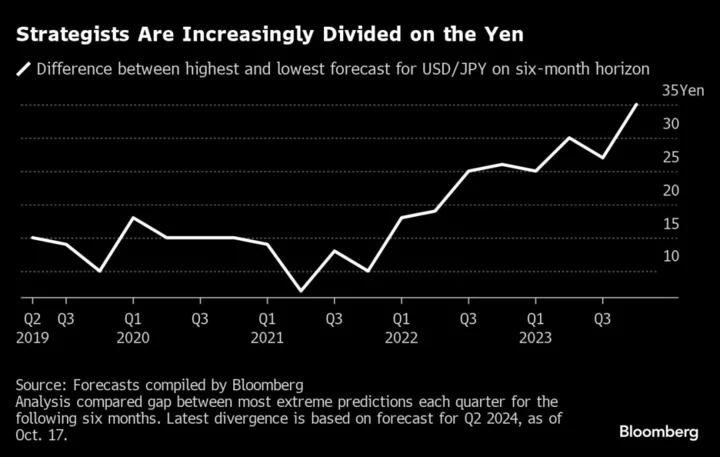
Wall Street Shreds Yen Playbook as US Rates Add to Currency Pain
A chasm is opening up on Wall Street over the direction of the yen. On the one side:
1970-01-01 08:00
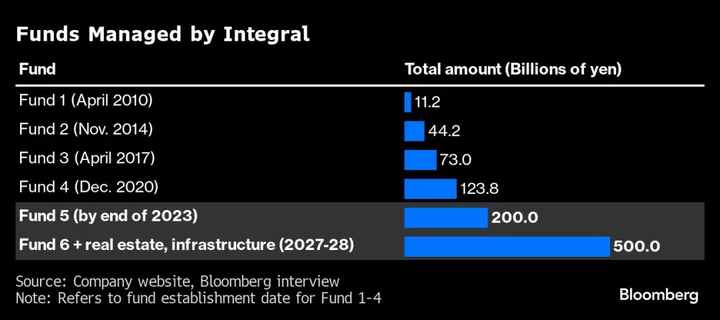
Private Equity Firm Integral Aims for Fund of $3 Billion After Tokyo IPO
Integral Corp. looks to accelerate growth by leveraging funds raised in its initial public offering last month, a
1970-01-01 08:00
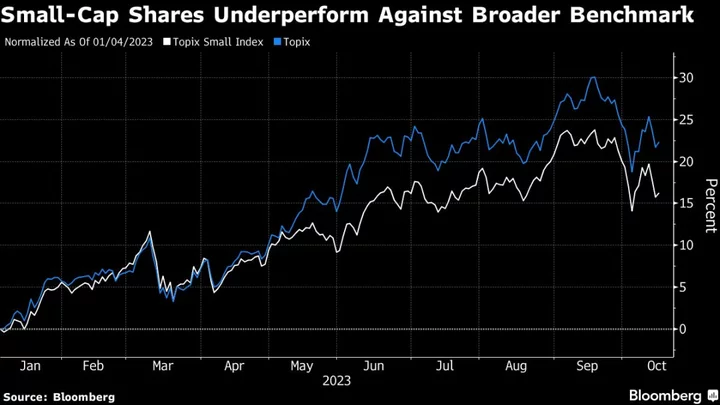
Top Japan Fund Bets English Disclosure to Lift Small-Cap Shares
A top-performing Japanese small-cap fund is betting that pressure on companies to provide financial information in English will
1970-01-01 08:00

Nomura Lays Off About 20 Staffers After Review of Markets Unit
Nomura Holdings Inc. is cutting roughly 20 staffers following a review of the firm’s markets and investment banking
1970-01-01 08:00
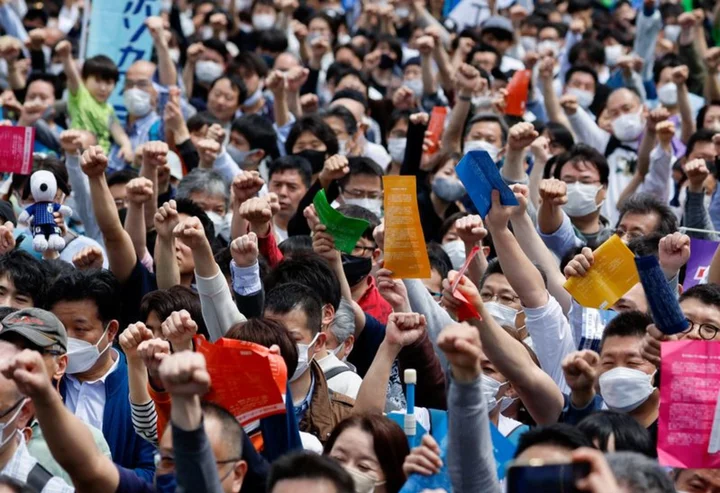
Japan's largest labour union to seek wage hike over 5% next year - NHK
TOKYO Japan's largest labour organisation Rengo is planning to ask for a total pay hike of more than
1970-01-01 08:00
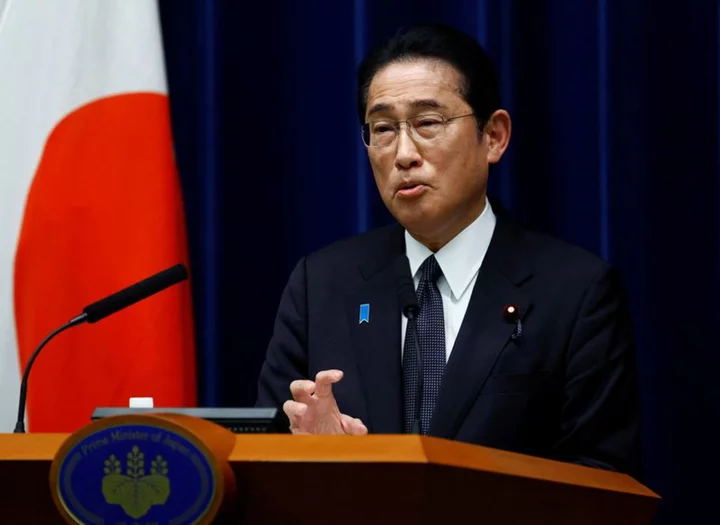
Japan ruling LDP offers proposals for Kishida's economic package, but no income tax cuts
TOKYO Lawmakers from Japan's ruling Liberal Democratic Party (LDP) gave a list of proposals to Prime Minister Fumio
1970-01-01 08:00
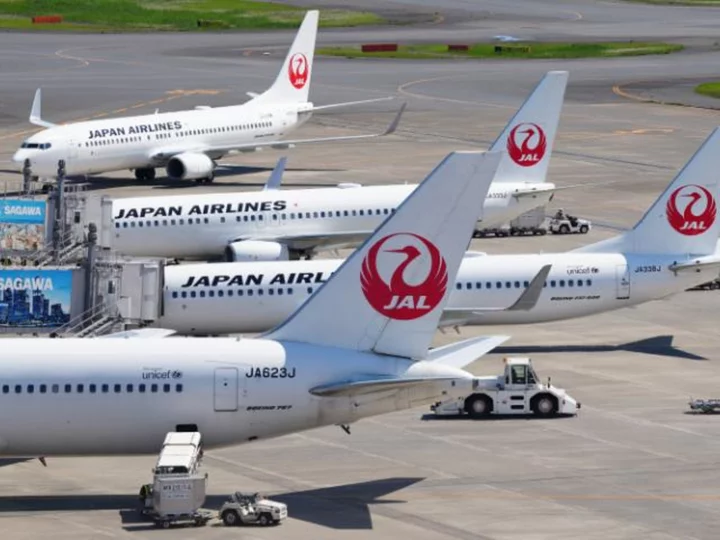
'The middle seat was the toughest': Japan Airlines adds extra flight to carry heavy sumo wrestlers
The sumo wrestlers weighed an average of 120 kilograms (264 pounds) each.
1970-01-01 08:00

Japan to give $10 million aid to Gaza civilians - foreign minister
By John Geddie TOKYO (Reuters) -Japan will provide $10 million in emergency aid for civilians in Gaza, foreign minister Yoko
1970-01-01 08:00
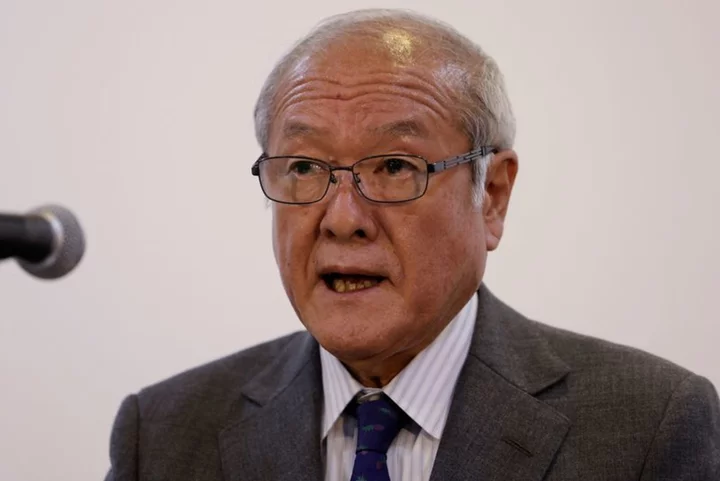
Japan finance minister: No comment on IMF remarks on FX intervention
TOKYO Japanese Finance Minister Shunichi Suzuki on Tuesday declined to comment on recent remarks by an IMF official
1970-01-01 08:00
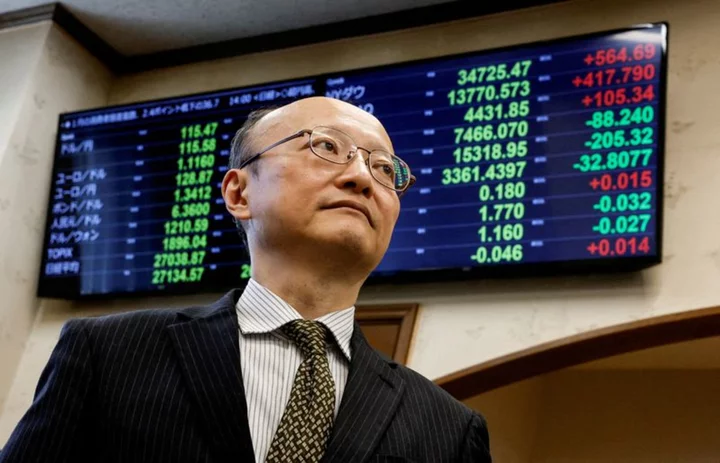
Japan's yen still perceived as safe-haven asset - MOF's Kanda
By Tetsushi Kajimoto and Satoshi Sugiyama TOKYO Japan's top financial diplomat said on Monday the yen was still
1970-01-01 08:00
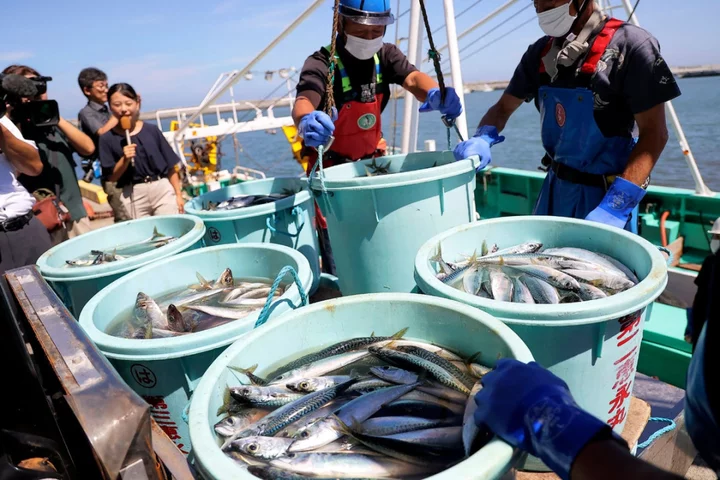
Sushi standoff spreads as Russia joins China in banning Japanese seafood
Russia has joined its ally China in suspending seafood trade with Japan after Tokyo began releasing treated radioactive water from its Fukushima nuclear plant into the ocean. Russia’s agricultural watchdog Rosselkhoznadzor said it is "joining China’s provisional restrictive measures on the import of fish and seafood products from Japan as of 16 October 2023”. It said the decision has been taken as a "precautionary measure” and restrictions will remain in place until more information was received to confirm the safety of Japanese seafood, which it said was still pending. Japan said the ban was “unjust” and regrettable. Japan began releasing the first batch of treated radioactive water from the tsunami-wrecked Fukushima nuclear power plant into the Pacific Ocean on 24 August and the second on 5 October amid opposition from fishing groups and neighbouring countries, including major trade partners like South Korea, China and Taiwan. The release of tons of water has generated international concerns with countries expressing doubts about the potential health and environmental risks posed by the release, leading to diplomatic and trade tensions with neighbours. This is despite Japan’s assurances that the released water is safe and will be diluted to well below internationally approved levels of tritium (an isotope of hydrogen hard to separate from water) before being released into the Pacific. Analysts have said that the restrictions on the import of fish from Japan appear unreasonable and could be motivated by political and financial interests rather than safety fears. Mark Foreman, an associate professor of nuclear chemistry in Sweden, told The Independent that the levels of radioactivity in the water discharged from the Fukushima site will not pose any danger to the general public and that these bans could not be defended from a scientific viewpoint. “I do not think it will even endanger a fish glutton who eats nothing but fish,” he said. “There is the problem that many politicians and countries wish to be seen to be more strict or protective of the public than another.” Reacting to Russia’s restrictions, Japan‘s Ministry of Agriculture, Forestry and Fisheries said on Monday that Moscow’s ban had "no scientific basis, is unjust and regrettable”, calling for it to be revoked, the Kyodo news agency reported. Japan‘s foreign ministry said that it had provided Russia with additional information before 15 October following an online dialogue between the relevant state bodies last week, it said in a statement released on Monday before Russia announced its ban. "Japan will continue to provide explanations based on scientific evidence to Russia in a highly transparent manner and in good faith, while undergoing the review by the IAEA," it added. Russia’s move comes after China – Japan’s biggest buyer of seafood – implemented its own ban on all seafood imports from Japan. Tokyo called on China and its territories Hong Kong and Macau to remove the ban and prime minister Fumio Kishida criticised Beijing for spreading "scientifically unfounded claims". Mr Foreman and other analysts suggested the bans could be explained partly by Tokyo’s closer alignment to the US and South Korea in recent years and the Fumio Kishida government’s policy of speaking out against the Ukraine war. “I see the bans as being made for political advantage and also in an attempt to obtain an economic advantage for the fishing fleets of the countries which are imposing the bans. I believe that no good scientific arguments can be made for these bans,” Mr Foreman said. International trade law expert Henry Gao told BBC News: “The main reason is not really the safety concerns. It is mainly due to Japan’s moves against China.” Vladimir Putin is due to visit Beijing this week for the Belt and Road Initiative Forum, only his second foreign visit since an International Criminal Court (ICC) arrest warrant was issued against him. Russia and China have forged closer ties and hailed their “no limits” partnership as Western countries have tried to isolate Mr Putin following his invasion of Ukraine. Moscow had criticised Tokyo for its stance on the war and for joining the Group of Seven (G7) nations in imposing sanctions after the invasion in February last year. Russia is also a direct competitor with Japan when it comes to catching fish and seafood in the waters off its far eastern regions, and is already one of the largest suppliers of marine products to China. Not a big market for Japanese seafood itself, Russia imported 118 metric tonnes of fish and seafood from January to September this year, according to Rosselkhoznadzor. Beyond China and Russia, the South Korean government is under pressure to put a blanket ban on imports from Tokyo. Seoul has maintained an import ban on fisheries products from Fukushima and some surrounding prefectures since 2013 but has so far refused to extend this to the rest of Japan. Read More Japan starts discharge of second treated batch of Fukushima water US ambassador to Japan calls Chinese ban on Japanese seafood 'economic coercion' Japan hits out at China’s ‘unacceptable’ seafood ban as it rolls out emergency fund The Body in the Woods | An Independent TV Original Documentary The harrowing discovery at centre of The Independent’s new documentary
1970-01-01 08:00
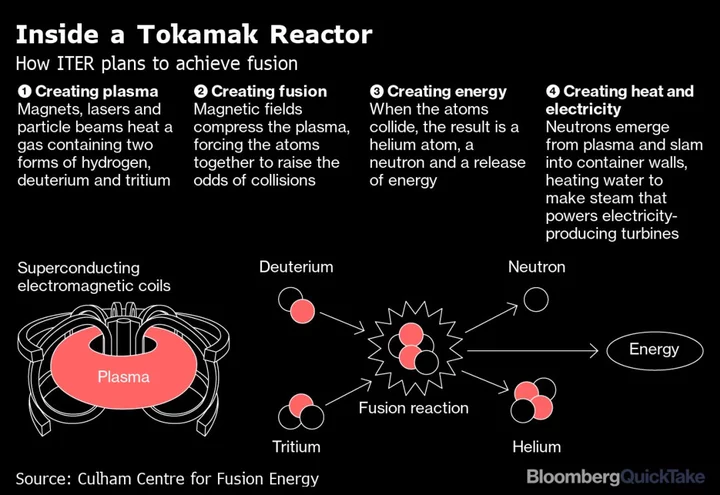
World’s Biggest Fusion-Energy Project Searches for Lost Memory
The executive in charge of the world’s biggest fusion-energy experiment is trying to rehire retired engineers, who possess
1970-01-01 08:00
